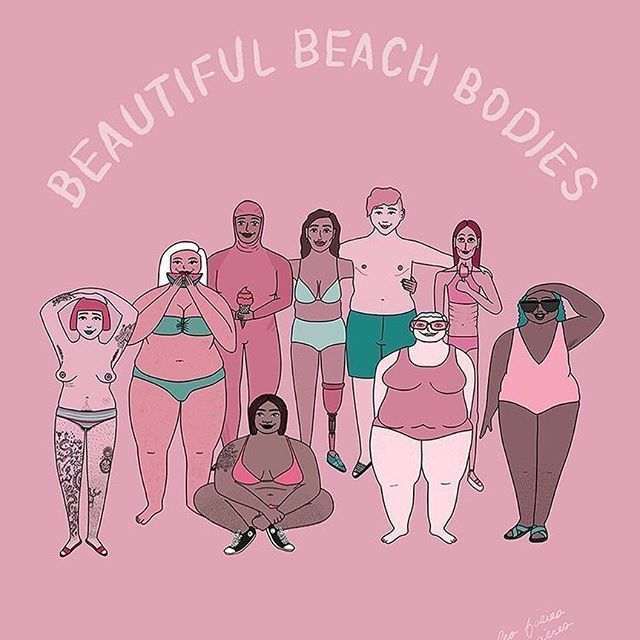
“Everywhere, on billboards, in the newspapers, on the screen, we encountered the revolting and insipid picture of ourselves that our oppressors wanted us to accept. And, because of all this, we were free. Because the Nazi venom seeped even into our thoughts, every accurate thought was a conquest. Because an all-powerful police tried to force us to hold our tongues, every word took on the value of a declaration of principles. Because we were hunted down, every one of our gestures had the weight of a solemn commitment.“
The Right to Talk
versus
Freedom of Expression
The iconic article “La République du silence” (The Republic of Silence) written in 1944 by Sartre, starts by this startling statement:
“Jamais nous n’avons été plus libres que sous l’occupation allemande.”
(“We were never more free than during the German occupation.“)
Then he launches on explaining how this freedom was built by means of the most vital decisive actions surmounting the Occupation circumstances:
“We had lost all our rights, beginning with the right to talk.”
Sartre puts the obstruction to the right to talk at the outset and then he enumerates the physical restraints. This ictus of Sartre on the (loss of) the right to talk is worth to reflect on how the right to talk is linked to freedom of expression. The following lines of his text imply that even a negative correlation is attestable between the two notions:
“Everywhere, on billboards, in the newspapers, on the screen, we encountered the revolting and insipid picture of ourselves that our oppressors wanted us to accept. And, because of all this, we were free. Because the Nazi venom seeped even into our thoughts, every accurate thought was a conquest. Because an all-powerful police tried to force us to hold our tongues, every word took on the value of a declaration of principles. Because we were hunted down, every one of our gestures had the weight of a solemn commitment.“²
The recent RT interview with Zizek addresses the current version of the same controversy. This interview mustn’t be taken as a simple praise to RT (as the usual Zizek-allergic intelligentsia would try to distort it that way) but as a deep critique to Western liberal permissiveness:
“the concept of “freedom” is routinely replaced with the concept of “liberty” in the West. “Liberty” as interpreted by the West allows individuals to be ‘free’ only within strict bounds, while actual, existential freedom is nowhere to be found. In our everyday life, the freedom we enjoy in a peaceful liberal society – yes, you are formally free, but you are never free in this deep, existential sense of being confronted with clear choices. We’re caught in daily compromises, we follow what we desire – and what we desire is already manipulated.”
The Western league of “democracy” today, corresponds to the Republic of “silence” of Sartre. The single slight sightly difference between the two is that, in an half a century period from Sartre to Zizek, that “silence” was filled by the clamorous racket of the fake Left.
It was few months after the Gezi riots when Professor Alain Badiou and Professor Slavoj Zizek were invited by Monokl Publishing and Bakırköy Municipality, for giving talks in Istanbul. The theme of the panel was how to envisage a “political subject” which was absent during the mass riots of that period of time, namely the occupy movements, the Arab Spring, Gezi riot and so on. Professor Badiou started his talk by setting forth that the principal motive of the riots was the quest for more liberty. Then he elaborated his talk step by step, logically demonstrating that for a politically meaningful and sustainable new regime of freedom, the masses should invent the conceptual and organizational means to formalize equality and fraternity.
His talk took more than an hour.
Then the moderator allowed questions. A girl was the first who took the microphone… and hereunder how she exercized her ‘right to talk’:
“Thank you, I really enjoyed your talk. But the only thing we wanted in Gezi was more freedom. What do you think about this?”
Despite this stuffy-mindedness which ruined an hour of brainstorming talk, Prof Badiou managed to show patience and extra kindness by summarizing his talk, spending another 15 minutes. This incident was exemplifying the pathetic caliber of the whole Gezi riot in general.
But what kind of venom was hunting down the girl (as it was probably the case for many other audiences too) so that nothing by the talk of the philosopher could penetrate into her brain? Here in the RT interview, Prof Zizek betokened such kind of a barrier:
“That’s his [Julian Assange’s] greatest contribution – not those messages of how the United States is torturing prisoners or killing soldiers who surrendered – we all knew this. The important work of Assange is how, as he once put it in a message to me, Google is really a privatized corporate forum of the NSA, how they collaborate in controlling us”
“It’s not directly prohibited to say this, but it’s marginalized.”
“The West likes to allow marginality – a serious protest here and there – so they can say: ‘You see, everything is possible.’ But they take care that it should remain marginalized”.
What if Marginalization fails:
The Expulsion of the two Musicians
In the quotation above, Prof Zizek argues that while the West allows marginalism (in order to promote a democratic image) it carefully marginalizes the marginal too, that is, its libertarian permissiveness functions as a mean for consolidating the marginal status of the marginal.
A conspicuous case of this (un-)careful marginalizing of the marginal recently bursted in Munich: the Mayor of Munich, Dieter Reiter gave an ultimatum to the chief conductor and to the pianist, the prominent Russian musicians Valery Gergiev and Denis Matsuev, ordering them to express their denunciation against the Russian military operation in Ukraine. Gergiev and Matsuev, having refused this imposition, they got fired from the Munich Philharmonic. Their colleagues İnci Özdil and Sıdıka Özdil protested this disgraceful expulsion: “Shame on you EU and USA.! This is exactly what the Nazis did to Toscanini. You backed neo-Nazi Ukraine and used art as a tool for your filthy purposes! WE CONDEMN!”
The expulsion of the two Russian musicians was the symptom of a more common marginalization which fits to what is meant by Prof Zizek: any talk on neo-Nazi nascencies in Ukraine is carefully marginalized in the Western media and any mentioning of it is easily suppressed by such an extenuating discourse: “Come on! There are stupid people everywhere in the World!“.
How come that this extenuation is so well adoptable so to sustain the marginalization at work?
It’s easy for the public to repel any identification with the canaille. But the problem arises when the matter of marginalization tips out as an already part of the personage of envy and emulation.
What strategy the ideological subject pursues in this case, namely, when the “other” appears as a non-negligeable phenomenon which also doesn’t fit the scheme of self-identification?
In that case, it sneakily attributes itself a moral superiority that overrides its skunk.
Let’s remind the allegations on Hitler’s — or rather Roosevelt’s — snubbing the Olympic champion Jesse Owens. It is still debated who snubbed Owens more, Hitler or Roosevelt? It was later revealed that Hitler didn’t shun shaking hands with Owens while Roosevelt didn’t even send to him a congratulatory message. Even if this is true, this fact doesn’t make Hitler any less racist than Roosevelt, but just a smarter — or a more politically correct — racist than Roosevelt, sneakily profiting out of his sporadic renunciations of his racism. This corresponds to the Lacanian concept of plus-de-jouir, a transitory filling of the lost object-cause of desire. The case with the two musicians in Munich was however exponentially worse than Hitler’s treating of Owens: they are blackmailed to renounce —both— on behalf —and also— in the servitude of Master’s plus-de-jouir so to enjoy their patronizing/emulating position: “they/we are Russians, but still they/we fit”. This is a perfect examplary of the usual Nazist mind-control. The same also goes for the discourse on the rush of Ukrainian refugees to the West: “they are refugees, but still they are blonde and European and therefore they fit”. What it is exactly the function of this logical operator “but still” in its pure abstractness, free from any association to any determinate object or identification? It signifies a pure void frame of desire, a constituent lack which stabilizes a marginalizing phantasm contouring the West as the pioneering of democracy, freedom of speech, liberty, and so on.
Everything goes for the Fake Left:
‘The ecologism for communist eliticism‘
and
The two suicides
Besides symptomatic cases, we should ask how these seemingly opposite kinds of two-way manipulations are logically and politically interconnected in their usual functioning of marginalization? To put it simpler, how come that the allowance for marginality (the liberal permissiveness) twists into a lever for marginalizing? How come that this allowance is designed for agglomerating a multipurpose fake Left that is instrumental for the perpetuation of the current hegemonic relations?
On January 2022 a junior medical student living in an unofficially run dorm by a religious sect, committed suicide. The suicide has soon been brought into the agenda of the country by the oppositional Left media and intelligentsia. The Left intelligentsia repeatedly propagated the harsh, suffocating rules of the religious biopolitics regning the everyday life in the dormitory: lack of privacy, limited communication, restricted access to outside, the daily obligatory religious practices and so on… All true. But the Left media held forth the religious oppression as the main reason for the suicide, which —as if— the suicide corresponded to the Durkheimian category of ‘fatalistic suicide‘. Is that true?
Could strict restrictions and rigid regulations imposed on someone’s personal space, be a reason for committing a (fatalistic) suicide?
Even being captivated in Nazi death camps were not a reason for committing (a fatalistic) suicide and instead led a stronger incentive for escape to freedom. What made then (at least some of) the victims in the death camps to escape and fight, while the religious oppression in a dorm was allegedly the reason for losing the will to live?
The well-known work of Durkheim “Suicide: A Study in Sociology” discusses this question. Durkheim coined the ambiguous term anomy in order to decipher the concept of social solidarity. Anomy is defined either as the lack of societal norms or as the presence of societal norms in mismatch with that of the victim’s. This double meaning of the term is problematic. Both types of anomy may overlap with the two other categories, the fatalistic suicide and the egotistic suicide. However each types of it categorically exclude the altruistic suicide. The altruistic suicide presumes not the lack of solidarity but on the contrary a very powerful solidarity (the exact opposite of anomic suicide). The altruistic suicide is often considered as heroic — especially if its incentive fits to the Other’s (its judging agency) incentives. The work of Durkheim is a cheap taxonomy. However it can be useful in providing the conceptual means for going deeper into a psychoanalytical critique for understanding the fake-Leftist discourses on the suicides. The “altruistic” version obviously doesn’t correspond to any of the suicide cases we discuss here. But again strangely, the fake-Leftist discourse tends to attribute such an altruistic heroism (via appropriating the sucider’s incentive and/or attributing it’s own incentive to the suicider) onto these incidents.
Thus, we need to focus on the concept of will to live and it’s connection to social solidarity, for solving this enigma.
Now, let’s compare the suicide of the junior medical student with another suicide which happened in the most libertarian university campus ever … a Lebensraum where there is no a time limit for getting in at night, no restrictions for inviting guests in the rooms, no drug control, no hindrance against using alcohol… on the upshot: a life without rules at all, in the Middle East Technical University (METU) campus!
A friend of mine, a professor at METU told me about the suicide that took place in this Campus. It was when we were gathered with a large group of scholars and students for the “Poplar-Wood Resistance“. The government was planning to build a new dorm inside the METU campus. The land on which the dorm was being planned was an area surrounded by poplar trees, that was how the resistance was named the “Poplar-Wood Resistance“. And the reason why the METU students uprised against the project was allegedly ecological: ‘there is an ecological system in the wood and should the poplars be cut for building a new dorm for students, it would harm the birds, insects and eventually everyone living in the campus, including the students…‘
The protest march started at the opposite end of the campus towards the Poplar-Wood area and I was walking next to my friend, the professor, with the other protester students and scholars… and started to cite the weird things circulating in front of my eyes:
— “Hey, you see, why are there such big auto parking areas in front of each building? These auto parking areas make in total, tens of times more surface area than the Poplar-Wood area reserved for the dorm construction!”
— “Why no one cares about converting these auto parking areas into gardens? Is auto parking a more necessary facility than the dorm for students? Hey, converting auto parking areas into woods would even save lives!” (Several students were killed or wounded so far, due to the car accidents inside the campus).
At the moment when we arrived to that very-ecological, the so-called Poplar-Wood area, all protesters being ready and impatiently hoping to a clash with the Police and their tear gas attack:
— “Hey, I don’t see any Poplar trees here! It’s just a weedy land!”
In fact, the poplar trees were grown around the construction area, along the road. Not inside the construction area!
Upon these sabotaging declamatory remarks of mine, at the peak moment of the furore, she finally exploded. Her words were touching right at the truth behind the whole foolery:
— “You know, a student of mine committed suicide! This campus is the unique place where we can take a breath, it’s a place where we can live our freedoms! We don’t want conservative, traditional outsiders alien to our libertarian culture coming here and invading our living space!”
It was in these words how the truth of the event was poured out:
Since the dorm which was planned in METU campus belonged to the ‘Higher Education Student Loans and Dormitories Institution’ (a State agency), students from various universities, including the non-METU students, would have been sheltered there. And these ‘non-METU intruders who were alien to the METU libertarian culture‘ would have ‘invaded‘ the METU campus…
What a pathetic mixture … And the ecologist propaganda they adopted as the pretext for the protest, was an obvious lie which was known by everyone.
Either
Plus-de-jouir for a collective lie
or
the toxic envy…
However it’s not an uncommon situation when a lie becomes the main driving force for a mass action and upon determining it, we ought to go one step beyond and ask the following question:
How this eliticist fantasizing of the libertarian campus life (the imaginary) was sustained by a collective lie (the symbolic) in such a way that it was anodyne to talk about the suicide (the symptom) in a dramatic way as if the suicide was either a fatalistic one (promoting the idea of victimization) or an altruistic one (promoting the idea of heroism)?
In other words, what it is, again, this plus-de-jouir that is derived out of this dramatization? Let’s remind that the source of plus-de-jouir is the transient filling of the object-cause of desire (objet a). Any filling of this void frame is fated to be transient by the time-logic of primordial sublation of the drive-jouissance circle. Thus the plus-de-jouir is sneak and slippery by nature. In order to catch up what it is, let’s give another example regarding to it’s contraposition, that is, the object of desire which never fits and fills the object-cause of desire. A healthy mind and soul’s will for living refuses this eternal mismatch while still keeping on running after their desires. The problem begins when one takes this mismatch for granted:
In another recent discussion I had with colleagues from Bosphorus University, this very egotistic profiting behind the lie was dramatically revealed. We were discussing on the inadequacy of Left in stopping the rise of islamism in Turkey. I indicated the equivalence in the logics between the two victimization discourses: the one, once upon a time brought about the ‘freedom’ to wear the religious headscarf (telling that “our poor long-despised religious daughters, they are deprived of using their right of education just because they want to cover their heads“), and the other, in today’s LGBT discourse for ‘freedom’ (“we are despised because of our sexual orientation and our outer appearances“). It was common that the Bosphorus University campus has been the nesting provenance for both discourses and their champions were supposed to be “Leftists”. The reaction of my colleague —who is a defender of the authenticity of LGBT and the rainbow politics— to my remarks, hit the jackpot: “The campus is the only place we can draw a breath. You can never imagine our suffering next to a 2mt height, athletic, handsome man! It’s a life-long suffering!”
This blunt “honesty” was the obscene admittance of the mismatch we described above, with a deep envy. Equivalently, the plus-de-jouir by the dramatization.of the suicide in the most libertarian campus ever, was another, more strategic variant of the same admittance of the mismatch by presuming a pseudo-ethical judgment sympathizing the suicide.
On the other hand, these exceptionally blunt words were also touching the truth of the new Left. It is especially remarkable how this obscene desire (the envy for “a 2mt height, athletic, handsome man“) was so well fitting to the logic of religious asceticism:

It is strictly prohibited
NOT TO
appreciate the beauty!
(The Body positive movement, fat feminism, and so on…)
And,
There is no way back:
Either Consistency,
or pathetic Obliquity
Prof Zizek tackles with that misery with the following words:
“Should women unashamedly wear mustaches? Should men abandon their masculinity because it’s ‘toxic’? This is all just a smoke screen capitalist overlords use to hide real issues and stay in power“³
Prof Zizek’s assertion that gender politics is an instrument at the hands of the rulers is already beyond all bearing for a typical new-Leftist. For better grounding his postulate, let’s try to explain how this “smoke screen” functions in such a way to affirm and perpetuate the existing power relations:
There is no authenticity in our desires. We learn to desire. We learn it as a managing technique to limit and regulate our impass with our drives. This learning is, simultaneously, the self-creation of our subjectivity.
The child is primordially stuck into a vicious drive-jouissence swivel. Contrary to the common romantic misunderstanding, the very intimate and immediate connection to the primary caregiver (via the drive-jouissence swivel) is not a state of ultimate joy, satisfaction and tranquility. It’s a suffocating whirlpool in repetitive drive (un)satisfaction writhle. The drive’s immediate and immanent fulfillment is the source of both joy and anxiety. The immediate consecutiveness of them imply their indistinguishability from each others, that is, the abundance versus hollowness paradox. The logic here is similar to the dialectics of the most fundamental abstract Hegelian concepts, Being and Nothing. It’s a deadly state of being whereinto the homo sapiens’ offspring is stuck. Due to this indistinctness, Lacan argues, every drive is a death drive which disrupts the functioning of our social or Symbolic selves.
Le no(m) du père puts an end to this anguishing swivel. It compels the child to signify a definite lack. This lack gains determinacy as it becomes signified as opposed to another signification, i e. either a determinate deprivation or a determinate possession.
Herein we have a secondary dialectics at work too. The introduction of the symbolic leads to two sorts of lacks: a constitutive, structural residue of the primordial lack (the object-cause of desire ie the objet petite a), and a determinate lack (the specific transient objects of desire ie the fantasmatic desire). The status of the former is especially exclusive: Prof Zizek defines the objet petite a, as the formal frame of our desires’ consistency.
To blame the above formula as a patriarchal theorisation is a shallow superficiality. The term Le no(m) du père does not necessarily designate a masculine father’s rule. It is the imposition of a symbolic order (language) by a third party (other than the primary caregiver) to the child, leading it —or castrating it— to limit and formalize it’s jouissance. The desire comes out by the sublation of the drive-enjoyment paradox through the mediation of this symbolic castration. It limits contains, encapsulates jouissance. This configuration of the imaginary (both the object-cause of all desire and the specific objects of desire, wherein the jouissance is encapsulated) together with the symbolic (the language wherein the societal norms and values are encapsulated) are therefore the correlated aspects of the same process of subjectivization.
Academic Gladio
and
The Psychosocial Dissociative Warfare by Radical Anti-Miscegenism
against Left
Now let’s get back to elaborate the questions of the previous sections: how the admittance of this mismatch is correlated with the allowance for the marginal in such a way to run the ideological machine of marginalizing? The brief account above provides some tools for finding out the common features of the two suicides in seemingly opposite living conditions of the victims. We already mentioned that the disruption of the functioning of our social or Symbolic selves is caused by —not desires— but by drives. And we also mentioned that the drive-jouissance vicious circle is lethal, while, on the contrary, the symbolic castration is the very condition for our staminal freedom. In this context (and contrary to the vulgar understanding of psychoanalytical theory), Le no(m) du père is introduced here not as a repressor but as a savior. The formation, regulation and the management of our desires are not matters of fun and satisfaction, but are torturous grinding crampons that we need to endure for the sake of preserving our will to live.
And, our will to live is inherently connected to the primordial sublation of our drive-jouissance cycle up into the formation of our subjectivation. And what we deal with here is definitely not a joyful world of satisfactions with full of rainbow colors. It’s all grey:
“… [sexuality] is not a happy domain. It is a domain of deep traumas, masochist reversals and so on. That is why it is not enough to claim that if we get rid of this big masculine-feminine gender duality and, to paraphrase Mao Zedong, who said that thousands of flowers should blossom in us, to say that thousands of identities should blossom and all will be happy and live a satisfied sexual life… — Here Prof Zizek probably challenges Barbara J. Risman’s bespoke book⁵ — … No, human sexuality, again, is inherently traumatic. It is a big mess, there is no simple formula here.”
Now we can ask the very toxic question:
What happens when the pseudo-revolutionary fake leftist big Other calls us “Explore the hidden polymorphic truth in yourself! Find out what you really are! Break the chains of gender identities, become fluid!, Everything is possible, you are free to be everything!“?
The consequence of this Call (or the Althusserian term ideological interpellation would well fit here) for consumerist polymorphism — argues Prof Zizek — gives a lead to even a worse oppression. How? He discusses several forms of it including the right of one’s objectification of oneself… but we will not go into these —not less important— details of the same phenomenon. The main consequence of it with regard to the betrayal to Left is dissociation, a phenomenon which corresponds to Durkheim’s concept of anomy:
The usual rainbow politics’ understanding of Durkheimian anomy would argue that anomy consists of two parts that both find their definitions relative to each others: the societal norms in clash with the individual’s authentic desires. The former is allegedly the bearer of power relations and oppression; the latter is praised as the bearer of authenticity and freedom…


Even if we take this postulate as true, our point here is to question how the new Left asseverates it’s own revolutionary societal norms and values to avoid anomy. Our question is far beyond the problem of inadequacy for the fake Left. Does it really have any incentive to reconstruct a new kind of solidarity peculiar to itself? No. And here is how the betrayal operates:
It is not a random fact that a kind of systematic childishness accompanies to this trend. Applauding this Call, one cannot find out who really is, because we are actually nothing without our consistency of desires we instill in ourselves by our own refutal of our nothingness. Within the pretext of freeing up our desires, it gradually disrupts the very basic logic of the drive-jouissance sublation. It doesn’t free up our desires but instead it liquidates our desires’ formal frame of consistency, forcing back the organ-body reunion and desubjectivation.
And this Call (or interpellation), is the biggest betrayal against all possible forms of Left. Because it tears down the fundamental building block for any kind of social solidarity, that is, the Subject and it’s splitted consistency…
How and by whom this asymmetric warfare is formulated? It’s not a random fact that the pioneers of this indoctrination are the American scholars having a common Eastern European Russo-phobic family background. Judith Pamela Butler, Barbara Risman, as well as the initiators of the dissolution of the 60s civil rights movement by introducing the second wave feminism, Gloria Steinem and her team, are both coming from a common anti-miscegenist, Russo-phobic family tradition. They traditionally religiously inherit a deep hate accompanying to sophisticated techniques of politicizing the libidinal energy (“private is political”). Their secularity is outwardly. And it’s neither a random fact that the full scholastic intelligentsia network formation around these promoted personages, are the apparata of NATO academic-Gladio.
The NATO fundings for gender politics via various scholarship programs namely the Fulbright and so on, are the well known —but again— marginalized facts that are not explicitly told and questioned.
“We Have to Live
Till We Die!“
For elaborating a more holistic conclusion on the impass of the fake Left, we hit again into a tiny but thorny conceptual distinction (similar to that of between ‘right to talk’ and ‘freedom of expression’) between the words ‘liberty’ and ‘freedom’. The two words sound kinda synonymous to a mediocre unwise mind. But it is conceptually more instrumental to take them as radically distinct notions to grab the essence of the full text above. ‘Liberty’ is derived from Libertatem in Latin and it’s primary meaning is the absence of restraint. In the Occupation circumstances defined by Sartre, we don’t have “liberty”. By contrast, “Freedom” is a particular decisive condition which is built with ethical concerns. We may not have liberty while we are free. Moreover, our very freedom may be related to our lack of liberty. The word “free” is derived from a Gothic/Saxon root which means “love”⁶ — the most elementary metaphysical, traumatic experience of an encounter with an impasse⁷. Hereunder how “freedom” was defined by John C. Calhoun:
“It has been said by some physicians, that life is a forced state. The same may be said of freedom. It requires efforts, it presupposes mental and moral qualities of a high order to be generally diffused in the society where it exists.”
Referring to the lyrics of Dalai Lama of Rammstein “We Have to Live Till We Die!” Professor Zizek provided an account of how the will to live is related to the notion of freedom. Rammstein’s statement sounds formally like a contrapositive of the hackneyed religious statement: “all living beings will die”. However despite having the same logical value with the latter, the former implies an additional notion: the will to live. We can lose the will to live and in this case we can still be “libre” but not “free”. Thus, “Liberty” corresponds to an initial state of “thrownness” wherein the abundance and hollowness are not yet distinguished. Once they are distinguished, we are never free again for living, “We Have to Live Till We Die!”, but we are always libre de mourir. What do the gender politics, queer theory and the new Left seek for? Freedom or liberty?
Notes:
¹ The noun suffix —louk added to the adjective Bashi-Bazouk, meaning the state or fact of being Bashi-Bazouk. For more information on Bashi-Bazouk please check Wikipedia:
https://en.m.wikipedia.org/wiki/Bashi-bazouk
² We took the English translation of Sartre’s text from Dilip Simeon’s blog and we replaced the word “liberty” in Dilip Simeon’s translation by “freedom”.
³ For-show female empowerment & gender fluidity are simply the latest instruments of corporate capitalism (By Slavoj Zizek), published in RT, on 5 Nov, 2019, at 18:04
https://www.rt.com/op-ed/472680-women-empowerment-gender-mustaches/
4) For a brief and very clear account of the concept of the lost object of desire in Lacan, refer (author’s name is not mentioned):
https://thedangerousmaybe.medium.com/lacans-concept-of-the-object-cause-of-desire-objet-petit-a-bd17b8f84e69
⁵ Barbara J. Risman, “Where the Millennials Will Take Us, a new generation wrestles with the gender structure”, Oxford University Press, Published in NY, USA, 2018, p.314
⁶ The etymological definitions and the quotes of John C. Calhoun and T.S. Eliot are taken from Douglas R. Harper’s magnificent work: Etymonline Dictionary.
⁷ Slavoj Zizek, Love as a Political Category, Talk given at Cinema Europa, 6th Subversive festival, 16 May 2013, https://m.youtube.com/watch?v=b44IhiCuNw4
